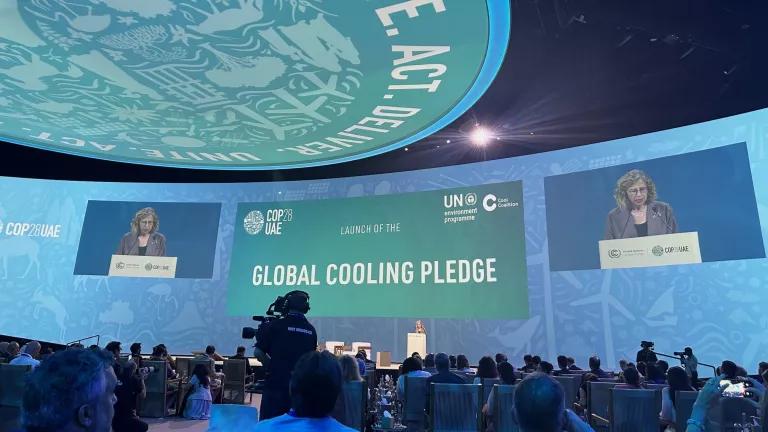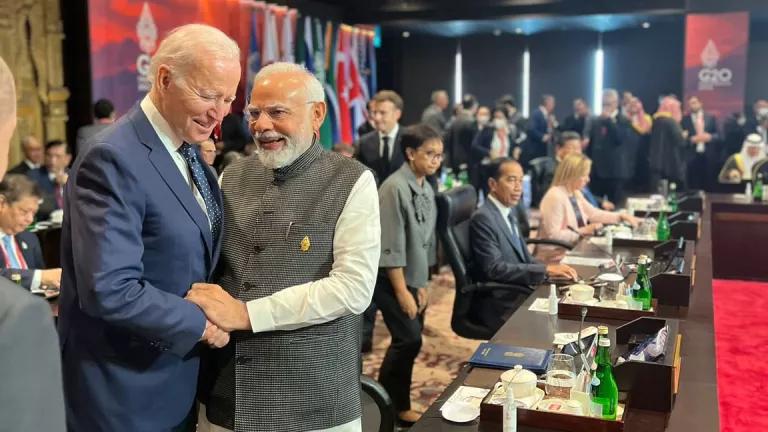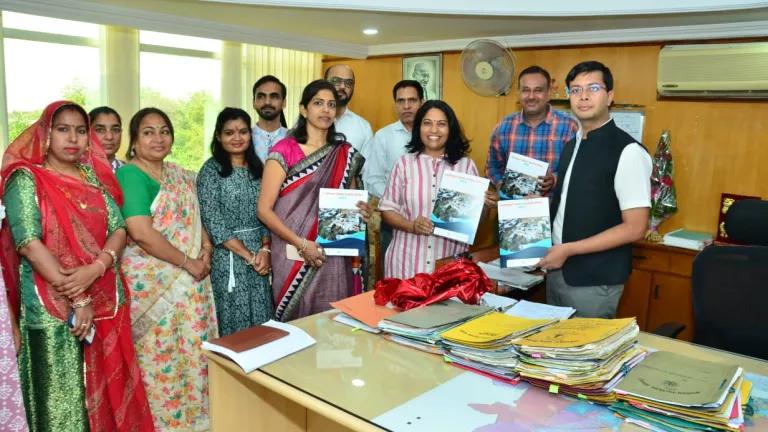Today is hot in Ahmedabad, India, at 40â°Celsius (about 104â°F) --but more than that, it’s an historic day for health among residents who live and work in this city of over 7 million. Today, the Ahmedabad Municipal Corporation (AMC) is taking steps to protect people’s health from the searing heat that is yet to come – and from climate change.
Ahmedabad’s groundbreaking Heat Action Plan is being launched today, with AMC Commissioner Shri Guruprasad Mohapatra saying, “Our Heat Action Planprovides the roadmap we need to save lives when the next dangerous heat wave hits.” The plan is headed for formal administrative approvals next week.
A group of partner organizations in India and the US has been working since 2011 to develop the Heat Action Plan. Today, the efforts of many terrific people -- public health and policy experts at the Indian Institute of Public Health, Gandhinagar; Public Health Foundation of India; Icahn School of Medicine at Mount Sinai; Rollins School of Public Health of Emory University; Georgia Institute of Technology; and we at the Natural Resources Defense Council, supported by the Climate & Development Knowledge Network-- are being launched as an actionable Plan.
My NRDC colleagues Anjali Jaiswal and Frances Beinecke, NRDC’s President, both blogged today on the launch, and are both in India now with first-hand accounts.
Ahmedabad’s Heat Action Plan focuses on three simple but powerful key strategies:
1. Build public awareness and community outreach on the risks of heat waves, and share practices to prevent heat-related illnesses. Spreading the word through pamphlets, posters, billboards and community meetings that heat is dangerous to health, especially to those most vulnerable to extreme heat, is a big component of the project.
Today, there are 10 billboards around Ahmedabad with tips on how to “beat the heat” – they’re also on auto-rickshaws used widely around the city, in both Gujarati and English:
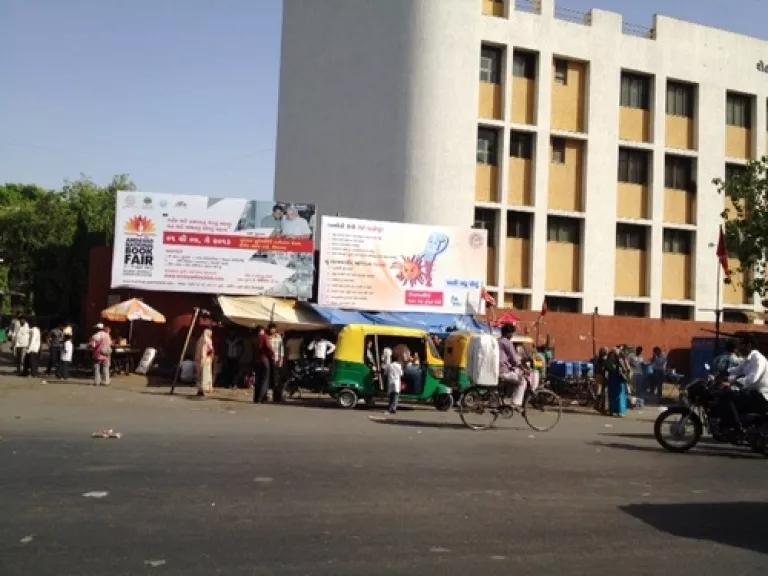
2.Initiate a simple early warning system to alert residents, and coordinate inter-agency response effort before and when heat waves hit. The AMC will coordinate government agencies, health officials, emergency response teams, community groups, and media outlets. With climate change, extreme heat conditions are likely to become more frequent, more severe health issues, so taking action now is wise.
3. Build capacity among medical and community healthcare professionals to recognize and respond to heat-related illnesses. Indian agencies are working to better equip medical professionals to offer advice on heat symptoms, diagnosis, and treatment to their medical staff, to reduce heat-related deaths and illnesses in future heat waves. Community-based health workers will also be trained to recognize heat dangers, and offer prevention tips for heat illness in slum communities that are home to an estimated 800,000 Ahmedavadis.
Pamphlets on how to protect yourself from extreme heat went to 6,000 schoolchildren. Hand-fans have been printed on one side in Gujarati & the other in English, a low-tech way to keep cool, as India Initiative Director Anjali Jaiswal shows:
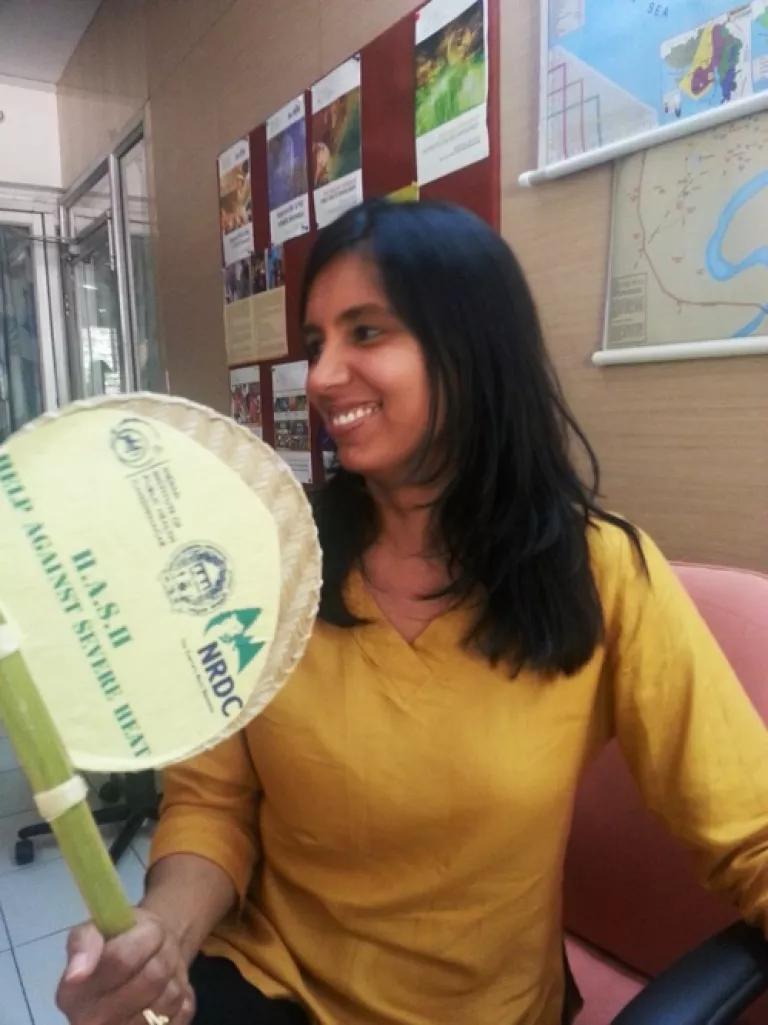
Ahmedabad’s Heat Action Plan aims to reduce the harmful health effects of extreme heat. I applaud AMC and partners on their vision, and on leading the way toward a healthier, more climate-secure Ahmedabad.

